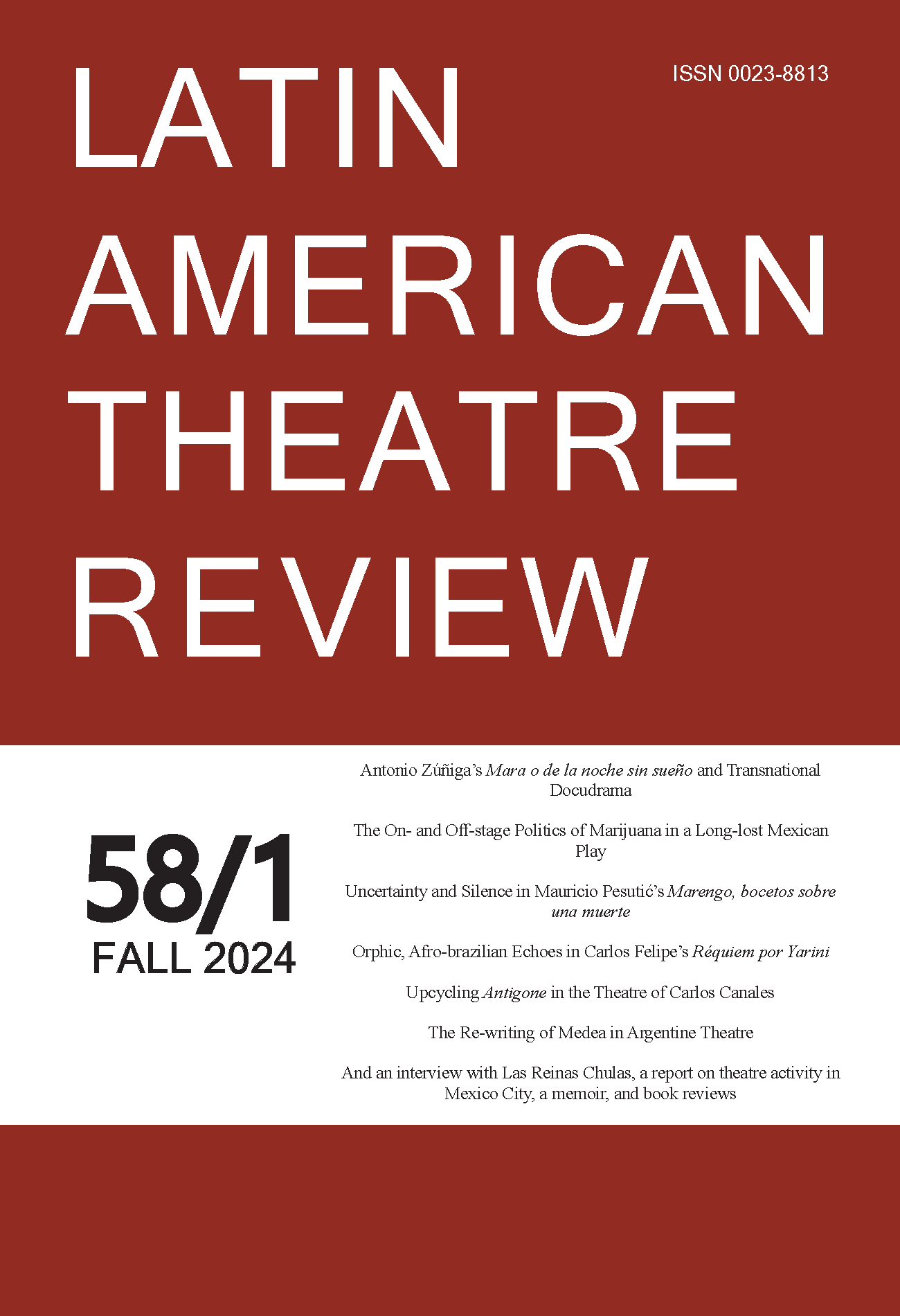Resumo
In 1938, Leopoldo Salazar Viniegra — the medical doctor who spearheaded Mexico’s brief decriminalization of drugs in 1940 — published a comedic one-act play refuting popular beliefs about the dangers of marijuana. The first known performance of this play, however, would not take place until February 2020 when playwright, activist, and then-senator Jesusa Rodríguez organized a staging of Doña Juanita in the Mexican Senate as part of an homage to Salazar. Amid current debates about the legalization of cannabis in Mexico, historians, politicians, and activists have begun to recuperate Salazar’s long-forgotten legacy as an early advocate of what we now call harm reduction. Yet despite this growing interest in Salazar, scholars have largely limited their focus to his academic and political discourse, paying little attention to how Salazar sought to use humorous texts like Doña Juanita to persuade the Mexican public of his controversial ideas. Through an analysis of this comedic play, this article examines how Salazar’s rejection of drug prohibition relied on a gendered framework of addiction that rhetorically equated the addictive qualities of drugs with feminine beauty and sexuality. While articulating a radical critique of Mexican drug policy, this rhetoric nevertheless perpetuated gender-based inequality by obfuscating the existence of female drug users in 1930s Mexico. In recent years, Salazar has become somewhat of a popular icon, inspiring a hit podcast in 2021 as well as a feature-length film currently under production with Paramount+. In light of his growing popularity, Jesusa Rodríguez’s 2020 staging of Salazar’s play highlights her subversion of the gender binary underlying his rhetoric of addiction to demonstrate how critical contemporary engagement with Salazar’s ideas might generate more nuanced conversations about drug policy that resist reproducing similar social inequalities.
All items © The Center of Latin American Studies and Caribbean Studies, The University of Kansas, Lawrence, Kansas 66045, U.S.A. Authors: If you prefer to remove your text(s) from this database please contact Dr. Stuart A. Day (day@ku.edu)
